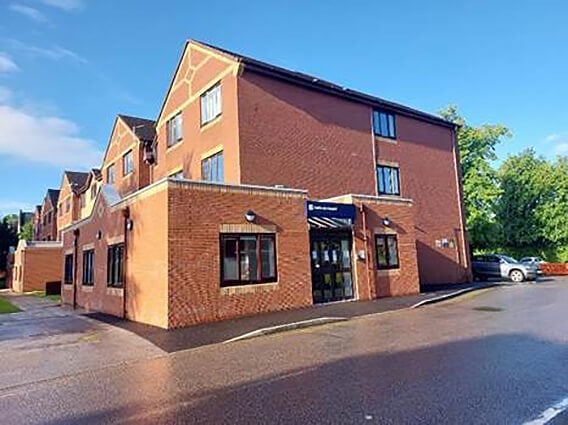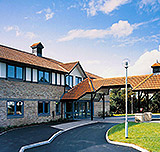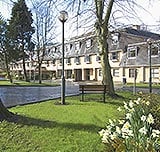
Weight Loss Patient Case Study

Gastric sleeve surgery, also known as sleeve gastrectomy, is a type of weight loss surgery that can provide dramatic weight loss results.
It’s a restrictive procedure where the capacity of your stomach is reduced by about 75% in order to aid substantial long-term weight loss. As a result, this should help your overall health improve.
It can be performed as a single procedure for weight loss, or it can be the first step before other weight loss surgical procedures, such as gastric bypass.
A gastric sleeve works by permanently removing a large portion of your stomach, leaving a new, smaller stomach about the size of a banana. As the capacity of your stomach is vastly reduced, it can only hold a small portion of food. You will feel full after eating much less food and be less hungry between meals. The resulting weight loss is normally fairly rapid due to the reduced intake of food.
A sleeve gastrectomy also removes the part of your stomach that produces the hunger stimulating hormone ghrelin. This means that your appetite is reduced.
Weight loss starts as soon as you have had the operation. After 18 months the sleeve stretches so it is important to maintain sensible portion sizes and not wait for the sleeve to stop you eating. If you eat the recommended foods (not soft or liquids), you will not feel hungry. You would need to take vitamins for life including quarterly B12 injections.
Gastric sleeve procedures were first introduced in 1988 as the restrictive part of a bariatric surgery to treat morbid and super morbid obesity called biliopancreatic diversion with duodenal switch (BPD-DS). In these high-risk patients sleeve gastrectomy was proposed as the first step of the procedure followed by a second procedure with the gastric bypass.
Sleeve gastrectomy, the first step in the two-step procedure, showed excellent weight-loss results and led to the proposal of the sleeve gastrectomy as a stand-alone procedure. As a result, since 2003, gastric sleeve surgery has been offered as a stand-alone bariatric procedure.
In 2012, the American Society for Metabolic and Bariatric Surgery (ASMBS) updated its position statement on sleeve gastrectomy as a bariatric procedure, recognising it as both a primary procedure and as the first stage in a two-step surgery.
This type of bariatric surgery will dramatically reduce your calorie intake. You can eat normally but you will want much smaller portions during a meal, which can lead to dramatic weight loss in a relatively short period. By weighing less, patients should also find it much easier to move around and carry out normal everyday activities.
The part of your stomach that contains cells with an appetite prompting hormone, called ghrelin, has been removed during surgery, therefore, your hunger should be reduced in this procedure more than other weight loss surgical procedures such as gastric banding. As this surgery preserves the pylorus, the valve that regulates emptying of the stomach, it allows food to stay in the stomach for a while, making you feel full while the food trickles out.
There is no rearrangement of the bowel with a gastric sleeve surgery therefore dumping, which may occur to gastric bypass patients when their undigested stomach contents are “dumped” into their small intestine too quickly, should not a problem. Also, a sleeve gastrectomy doesn’t affect the absorption of food, so nutritional deficiencies are less likely to occur.
Losing weight can also improve many medical conditions you may have. Conditions that may improve are asthma, type 2 diabetes, arthritis, high blood pressure, obstructive sleep apnoea, high cholesterol, and gastroesophageal disease (GERD).
You may be eligible for this surgery if:
A gastric sleeve should be recognised as a permanent procedure as it cannot be reversed.
Your bariatric nurse/surgeon will discuss with you if you are eligible for this type of weight loss surgery.
A gastric sleeve procedure is permanent, non-reversible surgery. The procedure works by permanently removing a large proportion of your stomach, leaving a new, smaller stomach. Whilst this surgery is non reversible, it can be converted to another procedure if necessary. It can be performed as the first step before other weight loss surgical procedures, such as a gastric bypass.
When preparing for any weight loss surgery you have to be able to make a lifelong commitment to major changes in your diet and lifestyle.
Always tell your bariatric nurse/surgeon what drugs, vitamins, herbs and other supplements you are taking. You may be asked to stop taking them before your surgery.
Try to start on a healthy lifestyle in the weeks leading up to your operation. This is to get you used to a change in lifestyle and may result in a greater weight loss after surgery.
Ensure that you have a ready supply of drinks, thin soups and purees for when you come out of hospital.
Make sure that you have all the medications you will need after surgery in a liquid form if necessary.
When preparing for any weight loss surgery you have to be able to make lifelong commitment to major changes in your diet and lifestyle. Try and start on healthy lifestyle in the weeks leading up to your operation. This is to get you used to change in lifestyle and may result in greater weight loss after surgery.
Before the surgery you’ll be given a general anaesthetic. The procedure is performed laparoscopically, using keyhole surgery, this has advantages over open surgery including a shorter hospital stay, a faster recovery time, reduced pain and bleeding following the procedure and less scarring.
Your weight loss surgeon will make two to five small cuts in your stomach and insert a long, thin telescope with a light and camera lens at one end, called a laparoscope through these cuts and other surgical instruments to carefully remove a large part of your stomach. They will then join together the remaining portions of your stomach using surgical staples to create a long sleeve shaped tube that will form your new stomach.
Your surgeon will then remove the laparoscope and operating tools and stich the incisions closed.
The procedure should take between 60 and 90 minutes.
After your surgery you’ll stay in hospital for approximately two nights.
Your stomach might be swollen and sore for several days therefore you are likely to need pain relief. You can take over-the-counter painkillers such as paracetamol or ibuprofen.
You’ll only be able to drink clear fluids the first day after surgery. You will then remain on a liquid diet for several weeks, progressing to soft, moist foods, and eventually after four to six weeks you’ll add solid foods.
Your weight loss surgeon or a dietitian will discuss your strict gastric sleeve diet and it's important that you follow it. You will need small portions as your stomach will fill quickly.
You should rest after surgery and avoid straining your wound. We recommend that you have someone around to help you with everyday activities in the early days.
Most people can return to their normal activities within two to four weeks following their surgery. You should discuss when to return to work and begin exercise with your weight loss surgeon.
Gastric sleeve surgery patients on average lose between 50 and 70% of excess body weight in two years. Initial weight loss may be rapid, but to ensure the weight loss continues and you reach your goals, you'll need to start regular exercise. Weighing less should make it much easier for you to move around, do your everyday activities and take up new past-times. Don't be tempted to overdo things to start with though – gradually increase the amount of exercise you do so your body can get used to it.
Aftercare is included within your treatment price, and you will have access to a range of specialists and information to help you with your aftercare and support.
You may experience some gastric sleeve side effects such as pain, bruising and swelling around your wounds, and vomiting or feeling sick after eating more than your new, smaller stomach can hold. You should try to chew your food well, eat smaller portions and stick to your diet plan.
Possible complications of any operation include: bleeding or a blood clot, pain and wound infection. Specific complications associated with gastric sleeve surgery include:
Your weight loss surgeon will discuss possible complications and side effects in detail with you before you make the decision to have gastric sleeve surgery.
Ramsay Health Care UK has a guide price from £9,975. This competitive cost includes: 24 months aftercare that comprises appointments with specialist bariatric nurses, specialist dieticians and medical reviews. Payment plans are available to fund your treatment.










Following months of hard work from members of our mobile diagnostic team, RDUK, Ramsay's Mobile Diagnostic Unit, is proud to announce its award of the Quality Standard for Imaging (QSI) Quality Mark.
Ramsay Health Care are proud to have been recognised as 'Highly Commended' for the Excellence in Clinical Innovation HSJ Independent Healthcare Providers Awards 2025! This is a great recognition of an outstanding dedication to support of the NHS and improvement in healthcare services.
Cobalt Hospital was honoured to sponsor The Best of South Tyneside Awards 2025, recognising outstanding contributions to the community. Our team had the privilege of presenting the Unsung Hero Award to Suzanne Jackson for her inspiring dedication. A fantastic evening celebrating those who make a real difference!
The information, including but not limited to, text, graphics, images and other material, contained on this website is for educational purposes only and not intended to be a substitute for medical advice, diagnosis or treatment. Always seek the advice of your physician or other qualified health care provider with any questions you may have regarding a medical condition or treatment.
No warranty or guarantee is made that the information contained on this website is complete or accurate in every respect. The testimonials, statements, and opinions presented on our website are applicable to the individuals depicted. Results will vary and may not be representative of the experience of others. Prior patient results are only provided as examples of what may be achievable. Individual results will vary and no guarantee is stated or implied by any photo use or any statement on this website.
Ramsay Health Care UK is not currently recruiting for any roles based outside of England. If you are interested in applying for a role with Ramsay Health Care UK, please note that all available positions are advertised exclusively on our official website: https://www.ramsayhealth.co.uk/careers. Be cautious of individuals or organisations that approach you directly for remotely-based roles. Always verify the authenticity of the job offer and be careful with whom you share your personal information. For more information and advice on employment fraud, please visit: https://www.ramsayhealth.co.uk/careers/recruitment-fraud